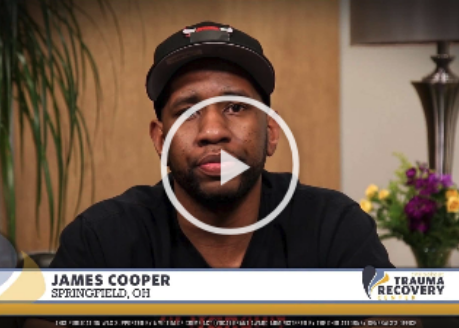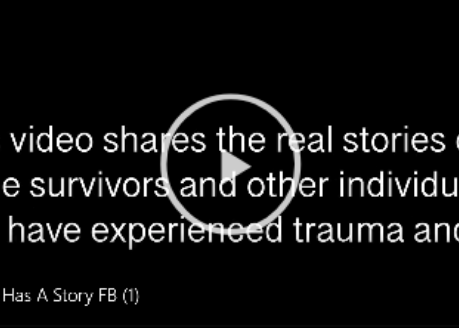You are not alone.
Staffed with experienced, trauma-trained counselors and victim advocates who are qualified to work directly with victims of crime, CitiLookout TRC is committed to serving clients in ways that promote the restoration of peace and sanctuary in the lives of victims of trauma. Recognized by the Ohio Attorney General’s Office for Quality Care, the staff is equipped and ready to respond to the unique needs of trauma victims. If you are a victim, of the family member of a victim, you may be eligible for free counseling. Contact us today to find out if you are eligible.
Our clients are valued and respected in the journey to empowerment and healing. Counselors and Victim Advocates provide crucial skills in listening, validation, and resources needed to enable each client to embrace a unique and successful healing.
What is trauma therapy?
Trauma therapy is just that – a form of talk therapy aimed at treating the emotional and mental health consequences of trauma. In clinical terms, a traumatic event is one in which a person’s life was threatened, or they witnessed another person’s life being threatened. Experiencing the death of another person can also trigger trauma-related problems for vulnerable individuals. It is unclear how and why people react to trauma differently. A combination of genetics, temperament, and repeated exposure to traumatic events can all play a role.
Some people can move on from a traumatic event and not experience adverse reactions to it for years after the fact. Others may be more susceptible to psychological wounds. If a person can cope with a severe threat, they are not traumatized. When someone has issues coping after the danger has passed, they are suffering from trauma. Women are more likely than men to experience trauma-related psychological wounds. Up to 20% of combat veterans will struggle with the symptoms of PTSD and psychological trauma.
CitiLookout provides individual, family, and group counseling and advocacy services for all victims of sexual or violent crime.
- Trauma-based counseling for individuals and families (men, women, children)
- Family Violence Group: For those dealing with violence at home
Sexual Assault is any unwanted, coerced or forced sexual activity. It is never a survivor’s fault.
Sexual assault happens regardless of gender, sexual identity or age. It is never a survivor’s fault. It does not matter if they were intoxicated, or previously engaged in sexual activity with the perpetrator. It is every person’s right to say no, at any time regardless of their relationship to the perpetrator.
IF YOU’VE BEEN SEXUALLY ASSAULTED, IT IS VERY IMPORTANT TO RECEIVE MEDICAL CARE AS SOON AS POSSIBLE.
Physical Abuse
This is the use of physical force against another person to inflict injury, or to put the person at risk of becoming injured. This may include your partner pushing, hitting, choking you, or threatening you with a weapon.
Sexual Abuse
This abuse often occurs in tandem with physical abuse. It involves forcing or coercing a victim to do something sexually, which can range from unwanted kissing or touching to rape. This can also involve threatening someone to perform a sexual act, including oral sex; restricting a victim’s access to birth control and condoms; or repeatedly using sexual insults to demean a victim.
Emotional Abuse
Emotional abuse is almost like brain washing in that it is done to wear away at a victim’s self-confidence. It can be verbal abuse; such as your partner repeatedly criticizing, intimidating or belittling you. It can also be nonverbal abuse or coercive control; when your partner asserts control and tries to demean you by making decisions on your behalf. This can include anything from what you should wear to who your friends should be.
Financial Abuse
This type of abuse involves stealing or withholding money from the victim, or using the victim’s name and personal information to accrue debt. The victim may feel financially dependent on their partner, or as though they are being forced to support their partner financially.
Spiritual Abuse
Also referred to as religious abuse, this involves a partner not allowing you to practice your moral or religious beliefs. It can include humiliation or harassment as a means of control, forcing a victim to give up their culture or values that are important to them. Spiritual abuse can be used by religious leaders to instill fear or guilt into a victim, coercing them to behave a certain way.








